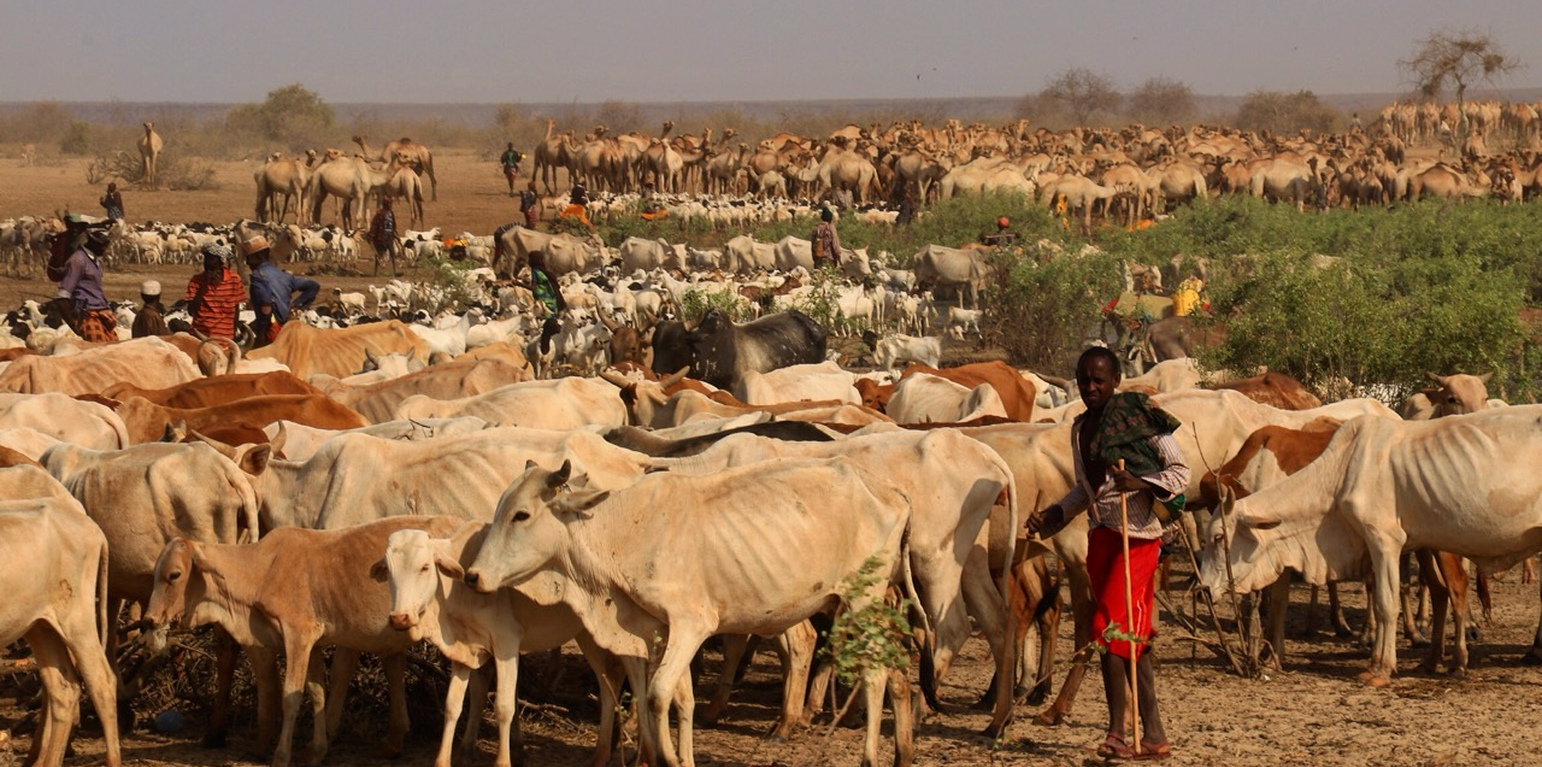



The Northern Rangelands Trust (NRT) is a non profit organisation established in 2004. It works with communities to develop community conservancies, to transform peoples lives, secure peace and conserves natural resources in northern Kenya. NRT works cross 20,000 km2, with 33 conservancies.
NRT established NRT Trading to identify, incubate, and pilot, and scale sustainable business across the NRT conservancies. The help to incubate and run business that encourages conservation ethics, while improving livelihoods.
The Livestock to Market Program (LTM) was established in 2006 as a partnership between NRT, NRT affiliated conservancies, and two private conservancies - Ol Pejeta and Lewa. The program was funded by Flora and Fauna International and The Nature Conservancy. The program was designed to: to build resilient livelihoods for local pastoralists through providing a local, equitable, reliable, fair market for a large number of cattle; provide incentives to increase production viability of cattle, reduce herd size and avoid losses during droughts; build conservation momentum; directly benefit individual conservancies through sale levies.
The model works to first buy cattle from NRT affiliated conservancies, these cattle are sold on weight and grade, and tries to embrace a more market-driven approach. Once bough cattle is quarantined and vaccinated on Lewa. They are then fattened and sold on to different markets depending on size and age.
The program aims to benefit local people through providing an equitable market with similar or better rates than available and through revenue generation for each conservancy - to provide health and education benefit. A key goal of this benefit system is through channeling conservancy levies and behavioral change into improved rangeland management. Improved management, implemented by conservancies, will lead to improved productivity of the rangelands, increased livestock quality, increased revenue for pastoralists, and ultimately contribute to the goals of NRT - Peace and security; resilient livelihoods; productive rangelands; stable wildlife; and growing enterprise.
NRT has a fully fledged grazing management team working across the conservancies to enhance pasture and land management is upheld by all members, this working by involving alienation of dry season and wet season grazing corridors in order to guarantee animal –wildlife sustainable grazing. Several technologies are implemented under this approach to improve rangeland management. Strategic destocking and cattle bunching in conservancies is one method. Supplementary feed is also provided to increase the weight gain of cattle before sale.
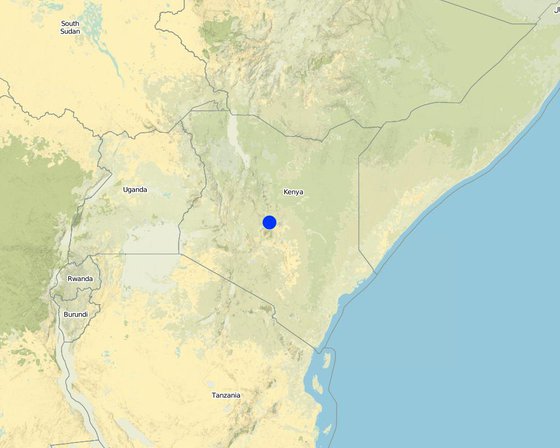
Байршил: Baringo, Garissa, Isiolo, Laiikipia, Meru, Samburu, Turkana and Lamu Counties, Кени
Эхлэх огноо: 2006
Төгсөх жил: тодорхойгүй
Арга барилын төрөл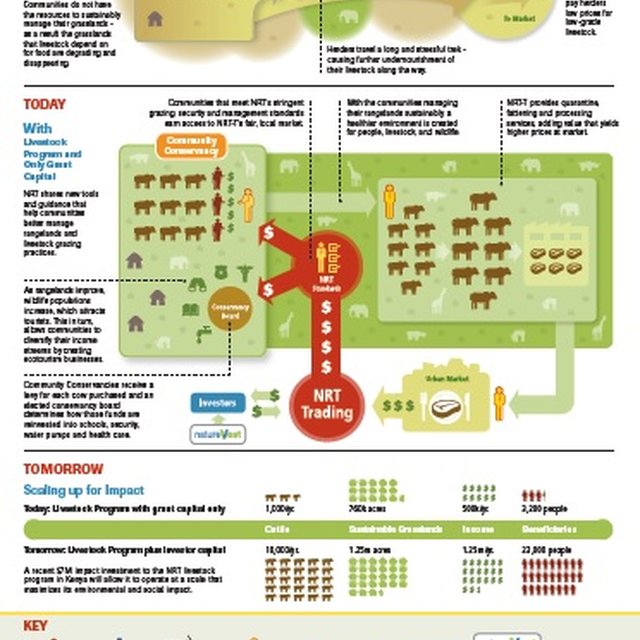
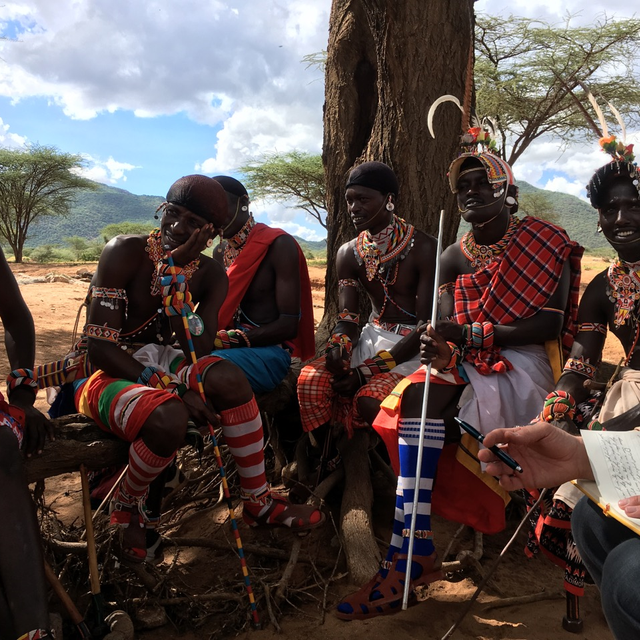
| Ямар оролцогч талууд / хэрэгжүүлэгч байгууллагууд арга барилд оролцож байсан бэ? | Оролцогч талуудыг тодорхойлно уу | Оролцогч талуудын үүргийг тайлбарлана уу |
| Орон нутгийн газар ашиглагч / орон нутгийн иргэд | 27 community conservancies | Land-owners and managers of cattle. They benefit from the sale of cattle through LTM and implement the grazing management plans. |
| ГТМ-ийн мэргэжилтэн/ хөдөө аж ахуйн зөвлөх | NRT - Grazing management team | Provide technical advise to conservancies to improve grazing management. |
| ТББ | Sidai | Sidai is working with community conservancies by selling drugs. LTM purchases some basic veterinary drugs from Sidai outlets. |
| Орон нутгийн захиргаа | County Government | Extension services for livestock management and disease control. Beneficiaries of county levies. |
Livestock to Market Benefit Systems
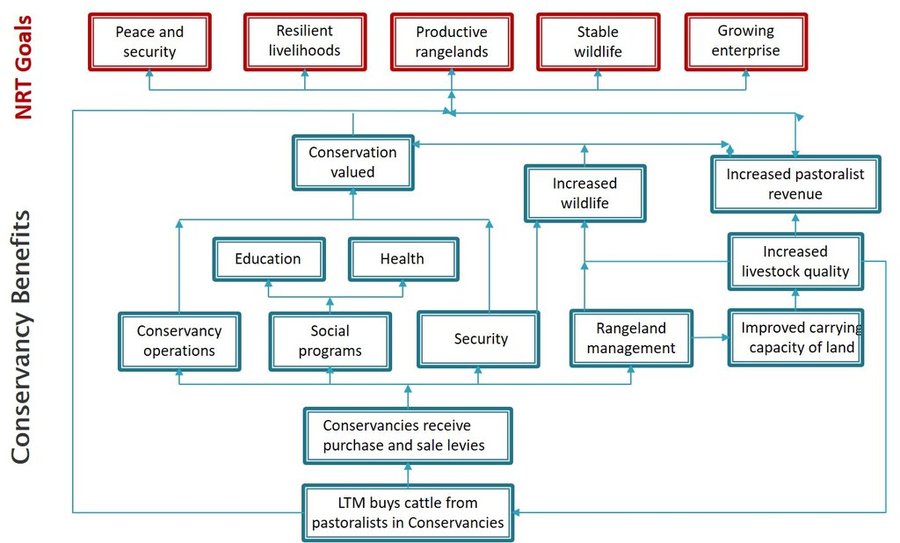
Шийдвэр гаргасан этгээд
Шийдвэр гаргах үндэслэл нь
The research formed the basis of choosing to scale up the programme and recommendations to run the programme as a business.
Through the strengthening of community conservation.
Provide financial incentives and technical support from NRT.
Through financing of conservancy operation which supports governance, security and conservation programs ($80,000 over 4 years).
Yes through the outreach from NRT grazing management team.
Strengthen ties between community conservancies, NRT and private conservancies.
Empower marginalized pastoralists through the provision of $1,982,210 over 4 years in income to 14,864 families.
Through financial provision to pastoral people.
This created regional livestock markets with 5630 cattle bought over 4 years.